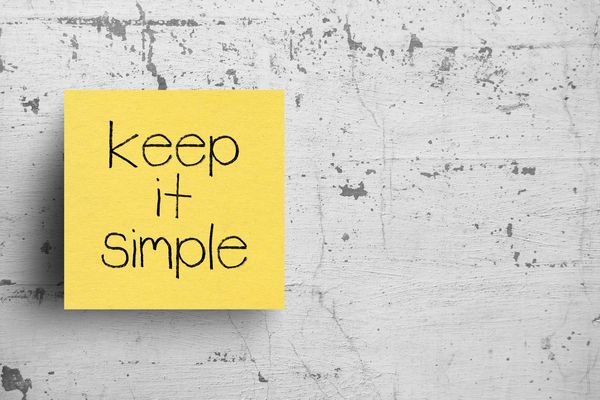Sitting on a beach gazing at the ocean. Eating a celebratory meal with family and friends. Riding bikes through the park with your kids. Most people have a long list of places they'd rather be than in a doctor's office waiting or exam room.
Even if feel that visits are stressful, scary, time-consuming or a hassle, you should make the most of them for the sake of your health.
We live in a time when the health care system can be confusing and complicated even to the most educated people. Still, it's more important now than ever to understand your health.
When you don't understand or can't act on your own health care, it can contribute to poor health. If you don't comprehend instructions, you may have difficulty taking your medicine correctly or managing a health condition. You may spend more on health care or end up in the hospital. You may have less likelihood of getting important tests like colonoscopies or mammograms.
We're here to help. Here are some easy ways to help build your health literacy and become a better patient and health advocate for yourself.
Ask questions. And make sure you get the answers to those questions, says the Agency for Healthcare Research and Quality. If you don't understand something, press your health care provider for more information. Ask questions like: Why are you ordering this test? Why are you prescribing this medication? What side effects can it cause? Here are some questions to ask yourself before you go and at the appointment.
Don't walk away in the dark. Doctor visits are quick and come with a ton of info. After your health care provider gives you directions, repeat those instructions in your own words. Say, "Let me see if I understand this." This gives you a chance to clarify information and make sure you receive clear communication. Learn more: 10 Important Steps to Better Communication With Your Doctor.
Be your own pharmacist. Bring all your medicines to your next medical visit. Ask your health care provider to review all your over-the-counter and prescription medicines, supplements, vitamins and herbal medicines. You may discover some mistakes, such as two drugs that shouldn't be taken together.
Tell the truth. You hesitate when the dentist asks, "So, are you flossing?" Of course, the dentist can tell right away whether you do or not. It's not easy to own up to bad health habits like how often you really drink or exercise. But you can't be diagnosed or treated effectively and properly if you don't tell the truth. Your health care provider needs accurate info to help you make smart decisions. So, 'fess up. If you're not comfortable enough with your health care provider to share your secrets, find a new one with whom you can be open and honest.
Bring someone with you. Taking a friend or relative to an appointment might be an especially good idea when you expect to receive important information or news. The person with you can take notes to help you remember everything later.
Know your medical history. Yes, your health care provider should have your medical records available. But, your health records may or may not be complete (especially if you recently switched providers or saw a specialist). You're not expected to have your entire health history committed to memory. But, do your best to know as much about your health as possible. The more you know about your health history—surgeries, procedures, medications, health conditions—the better you can participate in your health care. The same goes for your family. You should be able to answer questions about anyone who's had a serious health issue in your immediate family.
Tell the doctor's office if you need an interpreter. You have a right to an interpreter, at no cost to you. Even if you speak some English, tell the doctor's office what language you prefer when you make an appointment.
Read more:
The 7 Most Important Things to Do Before Visiting Your Health Care Professional
- Like Millions of Women, I Live With Chronic Pain — and I’ve Had to Learn to Advocate for Myself - HealthyWomen ›
- Like Millions of Women, I Live With Chronic Pain — and I’ve Had to Learn to Advocate for Myself - HealthyWomen ›
- Like Millions of Women, I Live With Chronic Pain — and I’ve Had to Learn to Advocate for Myself - HealthyWomen ›
- 5 Steps to Take When Your Healthcare Provider Won’t Listen to You - HealthyWomen ›







